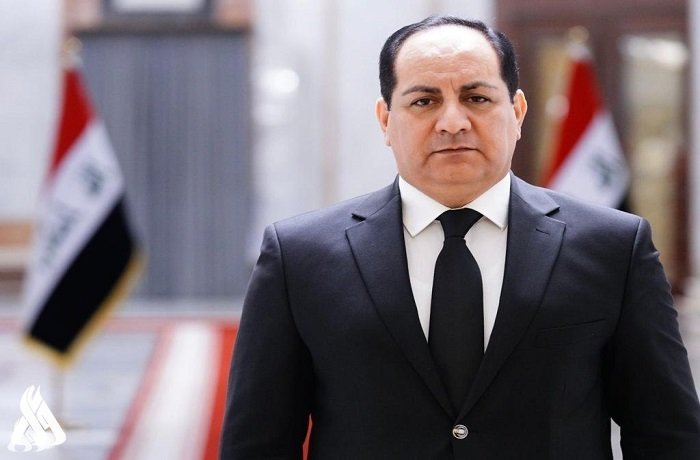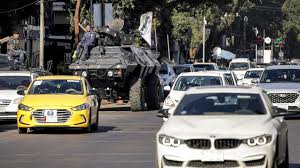MSN 3&&void 0!==arguments[3]?arguments[3]:p.Alert,s=arguments.length>4?arguments[4]:void 0,c=arguments.length>5?arguments[5]:void 0;try{const u=function(){if(!o){const e=document.head.getAttribute(“data-client-settings”);e&&(o=JSON.parse(e))}return o}(),g=a(),m=function(e){if(e){const{pcsInfo:t,pageGenTime:n}=e,o=new Date(n).getTime(),i=!t||[“prod”,”prod-ssr”,”prod-ssrntp”].includes(t.env);r=i?”browser.events.data.msn.com”:”events-sandbox.data.msn.com”;return{cors:”true”,”content-type”:”application/x-json-stream”,”client-id”:”NO_AUTH”,”client-version”:”1DS-Web-JS-2.2.2″,apikey:i?”0ded60c75e44443aa3484c42c1c43fe8-9fc57d3f-fdac-4bcf-b927-75eafe60192e-7279″:”f8857dedc6f54ca8962cfb713e01e7d7-e9250191-fe0b-446f-95ae-07516262f98c-7028″,”upload-time”:o,w:”0″,anoncknm:”app_anon”}}return null}(u);let f=””;m&&m.apikey&&””!==m.apikey&&(f=function(e){if(e){const t=e.indexOf(“-“);if(t>0)return e.substring(0,t)}return””}(m.apikey));const b=function(e,t,n,o,i,s){let r=arguments.length>6&&void 0!==arguments[6]?arguments[6]:p.Alert;if(n){i=i||{};const{apptype:c,audienceMode:l,pagetype:u,pageGenTime:p,bundleInfo:h,deviceFormFactor:g=””,fd_muid:m,os:f}=n;i.pageGenTime=p,i.build=h&&h.v,i.appType=c;const b=function(e,t,n){const o=n&&”phone”===n.toLowerCase(),i=t&&”enterprise”===t;return{bingHomepage:”binghomepage”,mmx:”emmx”,edge:”spartan”,edgeChromium:i?”entnews”:”anaheim”,hybrid:”spartan”,hub:o?”prime_mobile”:”prime”,microsoftNews:”msnews”,office:”entnews”,views:o?”prime_mobile”:”prime”,windowsShell:”windowsshell”}[e]}(c,l,g),v=b||c,y=document.getElementsByTagName(“html”)[0].getAttribute(“lang”);let k,S=””,A=”muid”;try{if(“edgeChromium”===c&&”object”==typeof window&&window.location&&window.location.search){const e=new URLSearchParams(window.location.search);k=e.has(“startpage”)?”msedgdhp”:”msedgntp”,”enterprise”===l?k=”entnewsntp”:”xbox”===f&&(k=”xboxntp”)}window&&window.getCookieConsentRequired&&”function”==typeof window.getCookieConsentRequired&&window.getCookieConsentRequired()||(S=d(“muid”))}catch{}S||(S=n.aid,A=”aid”);const C={name:”MS.News.Web.AppError”,time:p,ver:”4.0″,iKey:`o:${o}`,data:{baseData:{},baseType:”MS.News.Web.Base”,page:{name:”default”,product:v,type:w(u),content:{category:”standaloneError”},ocid:k},browser:{clientId:S,clientIdType:A},flight:{id:s},request:{activityId:n.aid,requestId:n.aid,afdMuid:m},locale:{mkt:y},extSchema:{id:e,severity:r,pb:i,message:t}}};var a;if(S&&”muid”===A)C.ext={…null==C?void 0:C.ext,user:{…null==C||null===(a=C.ext)||void 0===a?void 0:a.user,localId:`t:${S}`}};return C.data.flight.tmpl=””,”object”==typeof window&&(window.isSSREnabled&&(C.data.flight.tmpl+=”;ssr-enabled:1″),window.isSSRCompleted&&(C.data.flight.tmpl+=”;ssr-completed:1″)),C?JSON.stringify(C):null}return null}(t,e,u,f,n,g,i);if(c&&(l=10,!(Math.floor(101*Math.random())”visible”===e.name))){const t=()=>{“visible”===document.visibilityState&&navigator.sendBeacon(e,b)};document.addEventListener(“visibilitychange”,t,{once:!0})}else navigator.sendBeacon(e,b)}}catch{}var l}function w(e){let t=e;switch(e){case”windowsshellhp”:t=”dhp”;break;case”video”:t=”watch”}return t}const m=”visibilitychange”;function f(){return”visible”===document.visibilityState?Promise.resolve():new Promise((e=>{document.addEventListener(m,(()=>{“visible”===document.visibilityState&&e()}))}))}function b(e){const t=window&&window.chrome&&window.chrome.ntpSettingsPrivate;t&&t.logLoadingError&&f().then((()=>{t.logLoadingError(e)}))}function v(e){try{if(e)return JSON.parse(e)}catch(e){}return null}function y(){return!(“undefined”==typeof window||!window.document||!window.document.createElement||window.isRenderServiceEnv)}const k=”Authorization”;var S,A;!function(e){e.Presentation=”presentation”}(S||(S={})),function(e){e.Unknown=”Unknown”,e.Portrait=”Portrait”,e.Landscape=”Landscape”}(A||(A={}));var C,x;!function(e){e[e.Undefined=0]=”Undefined”,e[e.Basic=1]=”Basic”,e[e.Advanced=2]=”Advanced”,e[e.Premium=3]=”Premium”}(C||(C={})),function(e){e.Init=”init”,e.Config=”config”,e.Targeted=”targeted”,e.Sticky=”sticky”,e.NoSticky=”no_sticky”,e.Admin=”admin”,e.Forced=”forced”,e.Manual=”manual”}(x||(x={}));new Set([“winp0dash”,”winp1taskbar”,”winp1taskbarent”,”winp1taskbardirect”,”winp1taskbardirectent”,”winp1taskbarent”,”winp2juntaskbar”,”winp2juntaskbarent”,”winp2″,”winp2ent”,”winp2fp”,”winp2fpent”,”winp2fptaskbar”,”winp2fptaskbarent”,”winp2fptaskbarhover”,”winp2fptaskbarhoverent”,”winp2widget”,”winp2widgetent”]);const I=new Set([“finance-app-win”,”weather-app-win”,”winpstoreapp”]),_=(new Set([“msedgdhp”,”msedgdhphdr”,”msedgntphdr”,”msedgntp”,”msedgdhp”,”entnewsntp”]),new Set([“hpmsn”]));function q(){var e;return y()?v(document.head.dataset.clientSettings||(null===(e=document.getElementsByClassName(“peregrine-widget-settings”)[0])||void 0===e?void 0:e.getAttribute(“data-client-settings”))):null}const E=”feed/personalize/settings”;function O(e,t){const n=t.replace(/[[]]/g,”\$&”),o=new RegExp(“[?&]”+n+”(=([^&#]*)|&|#|$)”).exec(e);if(!o)return null;const i=o[2];return decodeURIComponent(i.replace(/+/g,” “))||””}let N=new class{constructor(){y()?(this.isDebugEnabled=(O(window.location.href,”debug”)||””).toLowerCase()in{1:1,true:1}||”vp”===(O(window.location.href,”reqsrc”)||””).toLowerCase(),this.isDebugEnabled&&!n.g.TEST_ENV&&(window.webpackRequire=n)):this.isDebugEnabled=!1}getLoggingService(){return null}isDebug(){return this.isDebugEnabled}setDebug(e){this.isDebugEnabled=e}setTags(e){}log(e,t){this.isDebug()&&console.info(e)}logError(e){console.error(e)}logCallback(e){this.isDebug()&&console.info(e())}logObjects(){this.isDebug()&&console.log(…arguments)}logSingleObject(e,t){this.isDebug()&&console.log(e)}};class T{get supported(){return!!this.storage}constructor(e){this.storage=e}getItem(e){if(this.supported)return this.storage.getItem(e)}getObject(e,t){const n=this.getItem(e);if(null!=n){const e=v(n);if(null!=e)return e}return t}key(e){if(this.supported&&e>=0)return this.storage.key(e)}keys(){return this.supported?Object.keys(this.storage):[]}setObject(e,t){void 0!==t?this.setItem(e,JSON.stringify(t)):this.removeItem(e)}removeObject(e){const t=this.removeItem(e);if(null!=t)return v(t)}setItem(e,t){let n=!(arguments.length>2&&void 0!==arguments[2])||arguments[2];if(this.supported)try{if(!t)throw”Attempted to store null/undefined value: “+t;this.storage.setItem(e,t)}catch(e){if(!n)throw e;N.logError(e)}else if(!n)throw new Error(“WebStorage not supported”)}get length(){if(this.supported)return this.storage.length}removeItem(e){if(this.supported){const t=this.getItem(e);return this.storage.removeItem(e),t}}clear(){this.supported&&this.storage.clear()}removeSubstringKeys(e){if(!this.supported||!e)return;const t=[];for(let n=0;n{n=!1,t=void 0}},o}!function(e){e.NotAvailable=”notAvailable”,e.Expired=”expired”,e.Valid=”valid”}(M||(M={}));const B=”currentaccount”,j=H((()=>{const e=d(B,!0),t=e&&v(e),{login_hint:n}=t||{};return n&&t})),$=H((()=>!!d(B)));let G=new Map;const J=Object.freeze({set(e,t){return G.set(e,t),this},get:function(e,t){let n=G.get(e);return void 0===n&&t&&(n=t(),G.set(e,n)),n},clear(){G.clear()},delete:e=>G.delete(e),has:e=>G.has(e)});const V=”__RequestDataInstance__”;class z{constructor(e,t){if(this.url=new URL(e.href),this.innerHeight=e.innerHeight,this.devicePixelRatio=e.devicePixelRatio,this.canUseCssGrid=e.canUseCssGrid,this.requestId=e.requestId,this.cookie=e.cookie,this.referer=e.referer,this.userAgent=e.userAgent,this.clientData=e.clientData,this.oneServiceHeaders=function(e){try{if(e)return JSON.parse(e)}catch(e){}}(e.oneServiceHeaders)||{},this.isPssrMode=t,t){const e=K(“OSATE”,this.cookie),t=!!e&&”1″===e,n=K(“OSAT”,this.cookie);if(t&&n||!e&&!n)return this.msalAuthReady=!0,void(n&&(this.oneServiceHeaders.Authorization=`Bearer ${n}`));this.msalAuthReady=!1,this.pssrRejectedReason=e&&!t?”interactiveLogin”:e&&!n?”missOSAT”:”missOSATE”}}static getInstance(){const e=J.get(V);return e||(n.g.TEST_ENV?X({href:”http://localhost:8080/”,innerHeight:768,devicePixelRatio:1,canUseCssGrid:!1,requestId:”0″,cookie:””,userAgent:””,referer:””,oneServiceHeaders:””}):X({href:”http://localhost:8080/”,innerHeight:0,devicePixelRatio:0,canUseCssGrid:!1,requestId:”0″,cookie:””,userAgent:””,referer:””,oneServiceHeaders:””}))}static resetInstance(e){const t=new z(e,arguments.length>1&&void 0!==arguments[1]&&arguments[1]);return J.set(V,t),t}}function K(e,t){if(t&&e){const n=new RegExp(“\b”+e+”\s*=\s*([^;]*)”,”i”).exec(t);return n&&n.length>1?n[1]:null}return null}const X=z.resetInstance,Y=()=>z.getInstance();function Z(){try{return localStorage}catch(e){return null}}const Q=”__PageExperimentInstance__”;function ee(e){J.set(Q,e)}function te(e){if(!J.has(Q)&&y()){var t;ee(ne(document.head.dataset.info||(null===(t=window.document.getElementsByClassName(“peregrine-widget-settings”)[0])||void 0===t||null===(t=t.dataset)||void 0===t?void 0:t.info)||””))}const n=J.get(Q);return n&&n.has(e)}function ne(e){const t=(e||””).replace(/(^f:|;.*$)/g,””).split(“,”);return new Set(t)}const oe=”uxlogin”,ie=”uxlogout”,se=”uxedit”,re=”useRedirect”,ae=”uxswitch”,ce=H((()=>{const e=Z();return e&&”1″===e.getItem(oe)||y()&&location.search&&location.search.includes(`${oe}=1`)}));const de=H((()=>{const e=function(){try{return sessionStorage}catch(e){return null}}();return e&&!!e.getItem(ie)}));const le=H((()=>{const e=Z();return e&&”1″===e.getItem(se)}));const ue=H((()=>{const e=Z(),t=!te(“prg-noredirect”)&&e&&”1″===e.getItem(re)&&function(){const e=document.head.dataset.clientSettings||””,{browser:t}=v(e)||{},{browserType:n=””}=t||{};return!!/safari/i.test(n)}();return t}));const pe=H((()=>{const e=Z();return e&&”1″===e.getItem(ae)}));const he={outlookMobile:”OnOOutlookMobile”,officeMobile:”OnOOfficeMobile”,sapphire:”OnOStartApp”,skype:”OnOSkype”,winWeatherApp:”weather-app-win”,xiaomiApp:”xmweather-“,launcher:”launcherntp”,launcherInterests:”launcherInterests”,moto:”moto”,swiftKey:”swiftKey”,winMoneyApp:”finance-app-win”},ge=”superappdhp”,we=[“ios”,”android”,”ipados”];let me=Oe(“ocid”).toLowerCase(),fe=Oe(“chpltfm”),[be,ve]=fe.toLowerCase().split(“-“);function ye(){if(!y())return!1;const e=window.sapphireWebViewBridge,t=window.webkit,n=e&&e.send,o=t&&t.messageHandlers&&t.messageHandlers.send&&t.messageHandlers.send.postMessage;return!(!n&&!o)}function ke(){const e=fe&&”outlook”===be&&we.includes(ve),t=me===he.outlookMobile.toLowerCase();return e||t}function Se(){const e=fe&&[“office”,”union”].includes(be)&&we.includes(ve),t=me===he.officeMobile.toLowerCase();return e||t}function Ae(){const e=me===he.skype.toLowerCase()||”skype”===be;return y()&&(null===(t=window.skypeWebviewBridge)||void 0===t?void 0:t.isSkype)||e;var t}function Ce(){return ye()||me===he.sapphire.toLowerCase()||me===ge.toLowerCase()}function xe(){const e=Oe(“edge”);return(“emmx”===be||”1″===e)&&Ce()||”mmx”===me}function Ie(){return”3rdp”===be||me.startsWith(he.xiaomiApp)||me===he.moto.toLowerCase()||_e()}function _e(){return me.toLowerCase()===he.swiftKey.toLowerCase()||”swiftkey”==be.toLowerCase()}function qe(){return-1!==location.href.indexOf(“huawei”)||-1!==location.href.indexOf(“airfind”)||-1!==location.href.indexOf(“aloha”)||”vivo”===me&&Ie()}const Ee=H((()=>ye()||Ae()||Se()||ke()||Ce()||me===he.winWeatherApp.toLowerCase()||me===he.winMoneyApp.toLowerCase()||xe()||Ie()||[he.launcher.toLowerCase(),he.launcherInterests.toLowerCase()].includes(me)&&Ce()||_e()||qe()||-1!==location.href.indexOf(“metaos=true”)));function Oe(e){try{return new URL(location.href).searchParams.get(e)||””}catch(e){return””}}const Ne=q()||{},Te={newsAndInterests:1,windowsNewsbar:1,windowsNewsPlus:1,winWidgets:1,windowsShell:1,windowsShellV2:1,distribution:1,superApp:1,channeldesktop:1,channelmobile:1,edgeMobile:1},Le={edgeChromium:1},Pe={winWidgets:1},Me={edgeChromium:1,shopping:1,newsAndInterests:1,windowsNewsbar:1,windowsNewsPlus:1,winWidgets:1,windowsShell:1,windowsShellV2:1},Re={edgeChromium:1,channeldesktop:1,channelmobile:1,cgHomePage:1,distribution:1,newsAndInterests:1,windowsNewsbar:1,windowsNewsPlus:1,winWidgets:1,windowsShell:1,windowsShellV2:1,superApp:1,edgeMobile:1},We=H((()=>Ne&&Ne.apptype)),Ue=(H((()=>y()&&We()in Pe)),H((()=>y()&&!Ee()&&!(We()in Te)&&!He()&&!Be()))),De=H((()=>Ue()&&!(We()in Le)));H((()=>Ue()&&(!(We()in Le)||!$()))),H((()=>Ue()&&!Je()&&!Ve()));function Fe(){return Ve()||Je()}const He=H((()=>{const e=!(We()in Me)&&ze()&&function(){const e=new URLSearchParams(y()?window.location.search:Y().url.search).get(“ocid”)||(null==Ne?void 0:Ne.ocid),t=null==e?void 0:e.toLowerCase(),n=!_.has(t)&&”homePage”!==We()&&!I.has(t);return n}()&&!function(){const e=”windows”==We()&&”windowshp”==(Ne&&Ne.pagetype)&&(y()?window.location.href:Y().url.href).includes(`${E}`);return e}();return e})),Be=()=>y()&&document&&document.body&&document.body.getElementsByClassName(“peregrine-widgets”).length>0,je=H((()=>te(“prg-1s-workid”)||te(“prg-1s-sm-workid”)||te(“prg-1s-twid”)||te(“prg-1s-mm-wid-t”)));H((()=>We()in Re||He()));function $e(){const e=W;if(e)return N.log(“dual-auth: tryGet1SAuthToken returned live tokens”),e;const t=U();if(t)return N.log(`dual-auth: tryGet1SAuthToken returned cached tokens that are ${D()}`),t;N.log(“dual-auth: tryGet1SAuthToken returned empty tokens”)}function Ge(e){const t={};return…
Continue reading


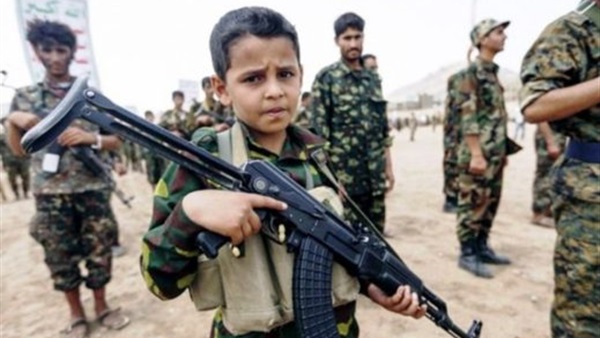
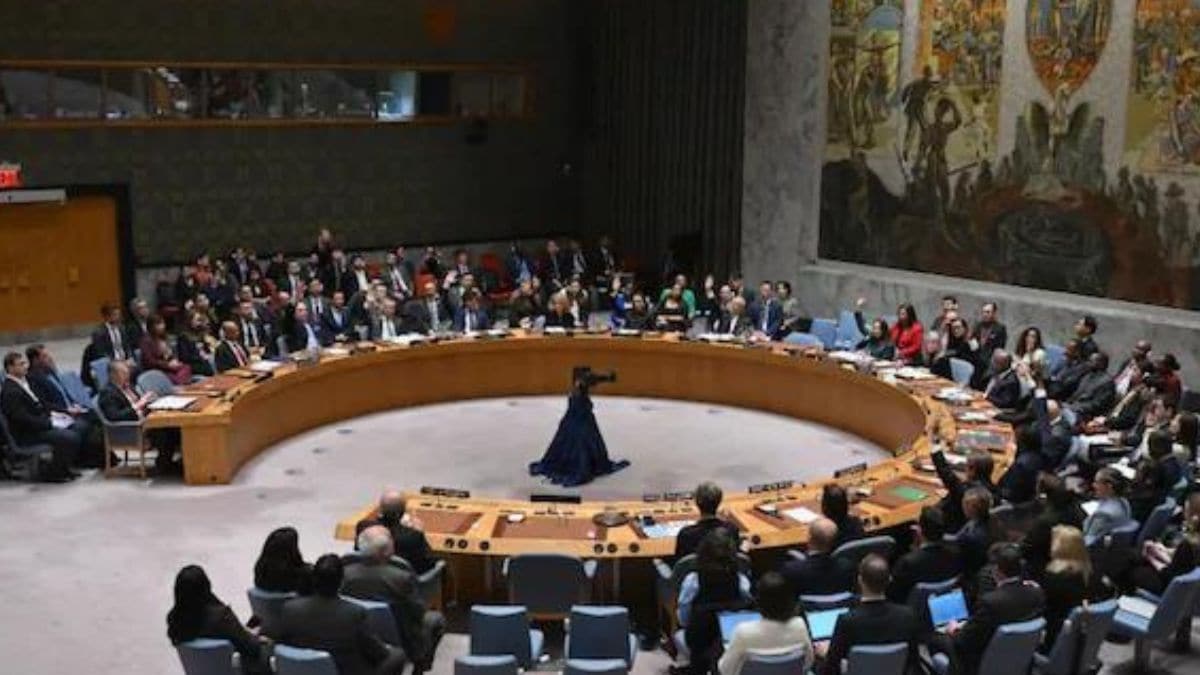
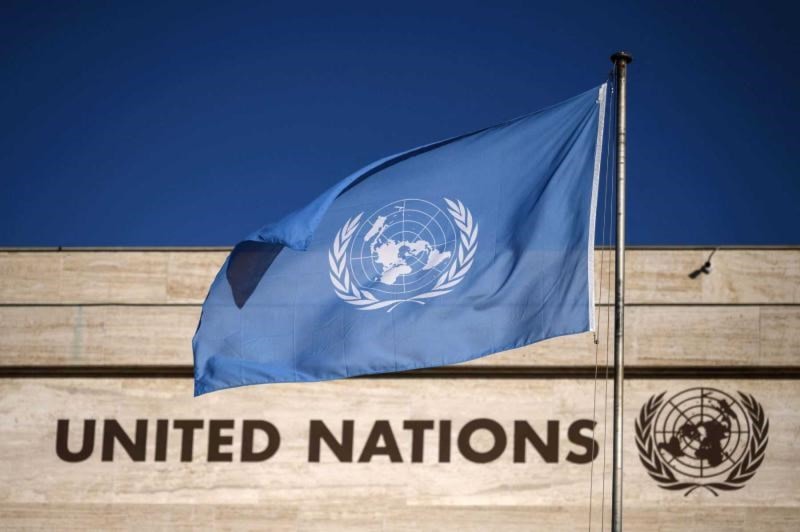
 View of the main entrance of the “Palais des Nations” building which houses the United Nations Offices in Geneva (AFP)
View of the main entrance of the “Palais des Nations” building which houses the United Nations Offices in Geneva (AFP) 